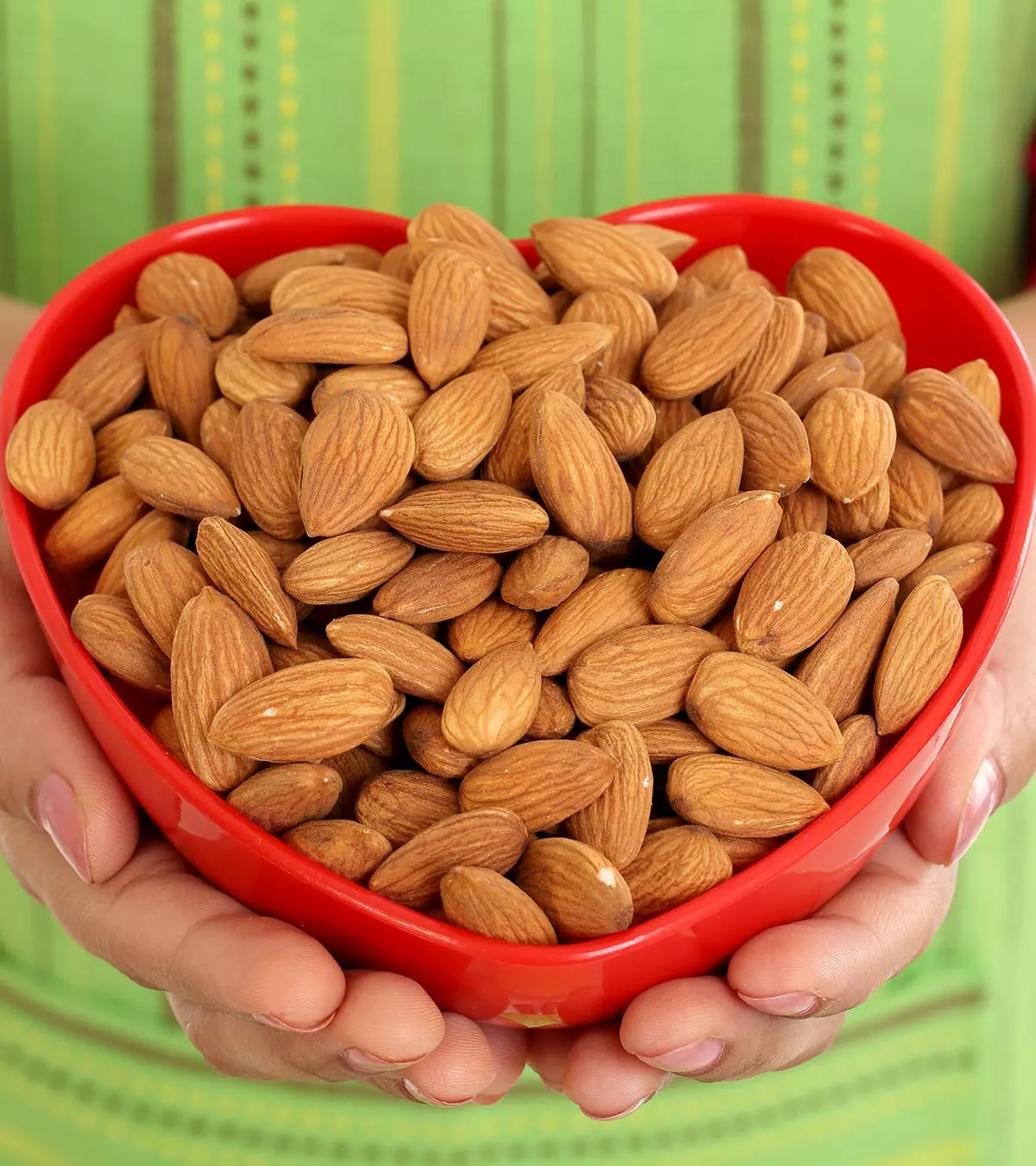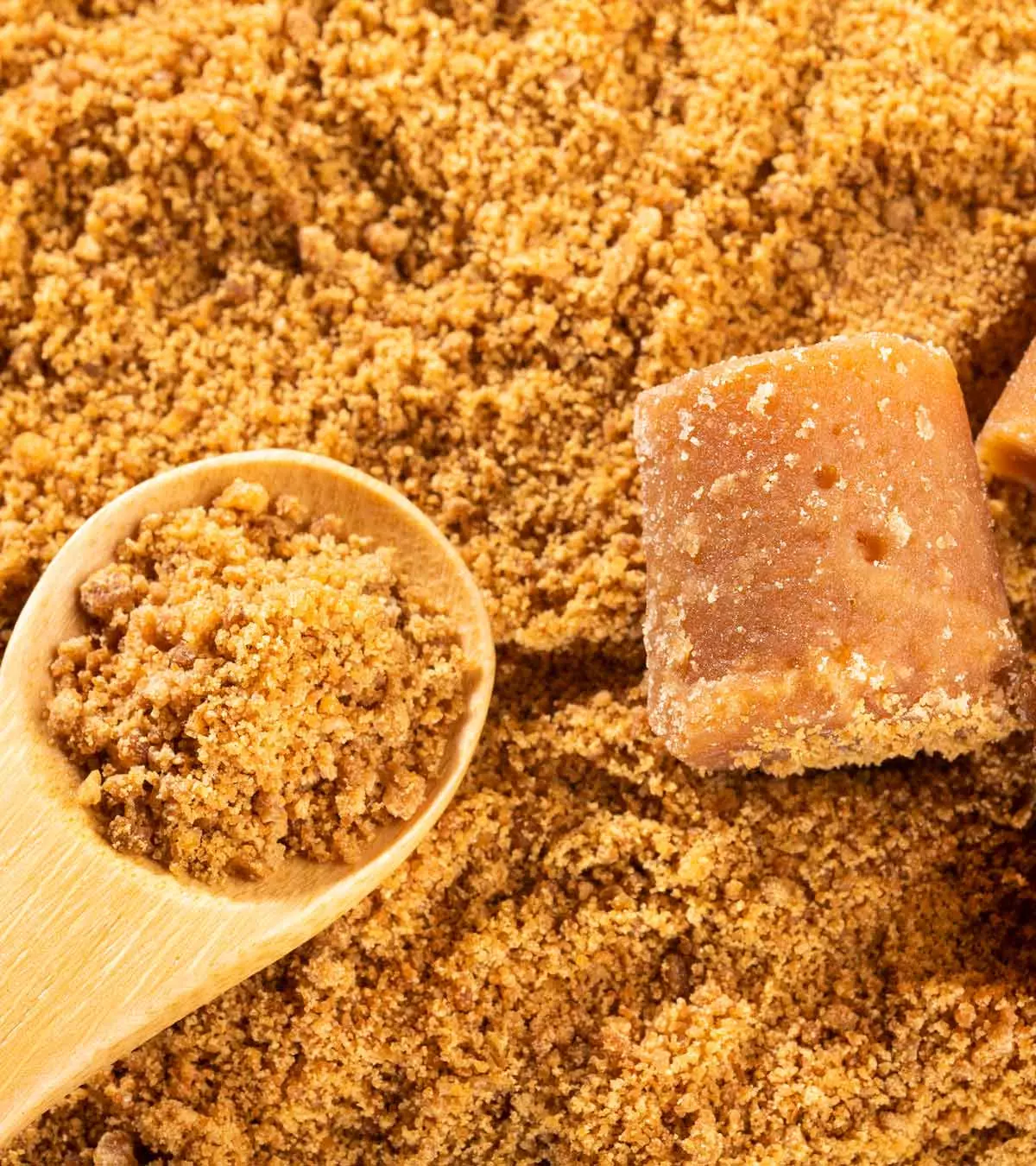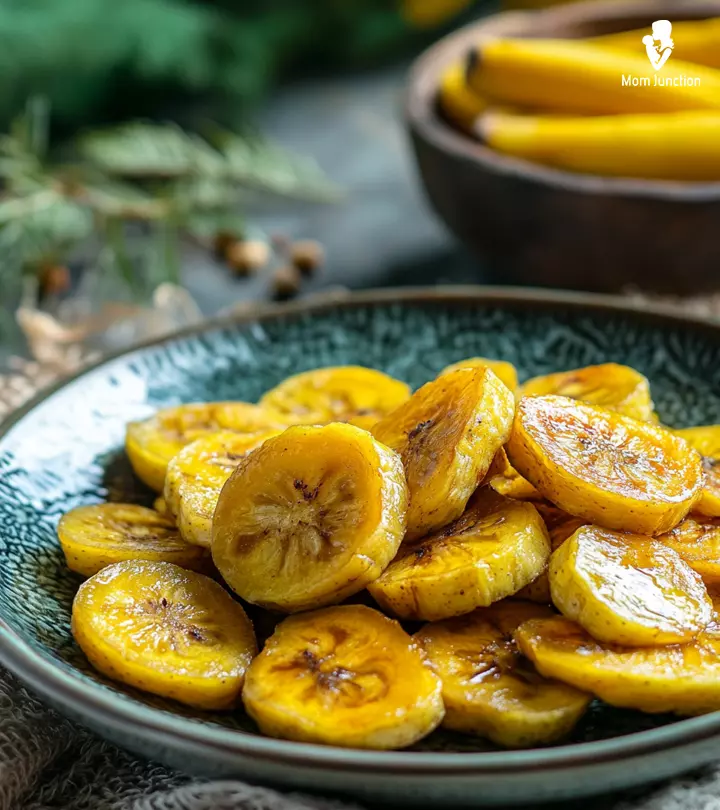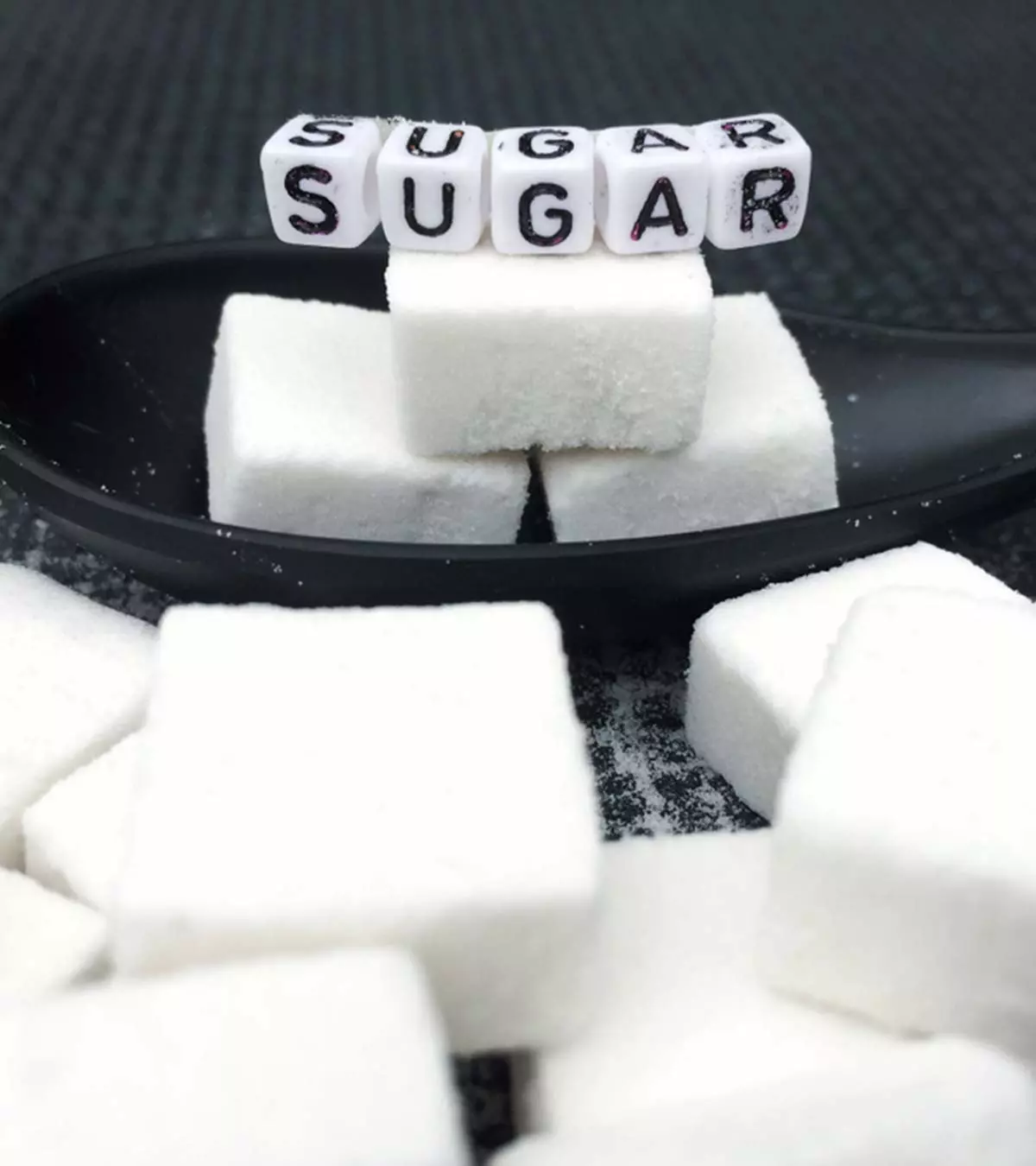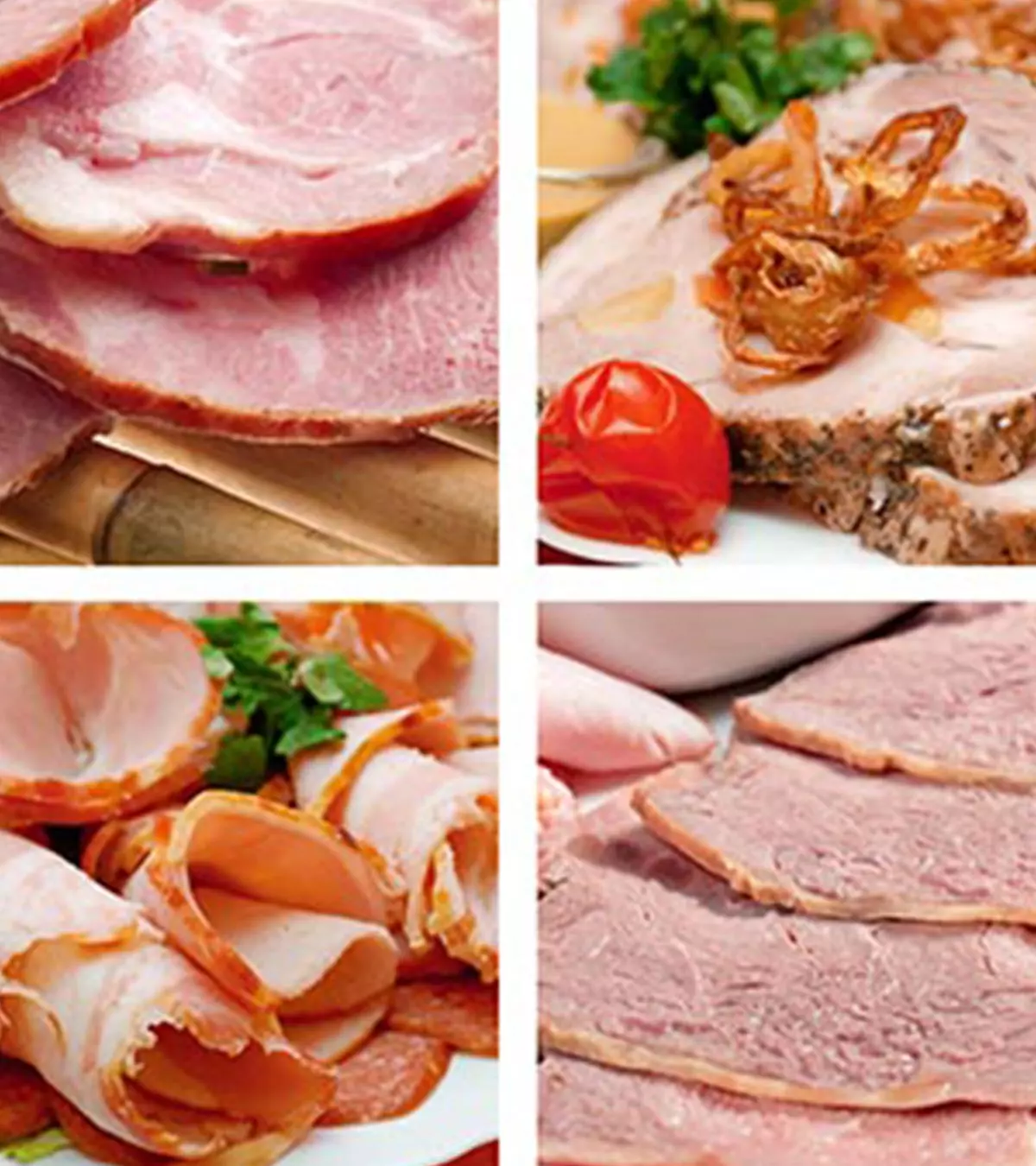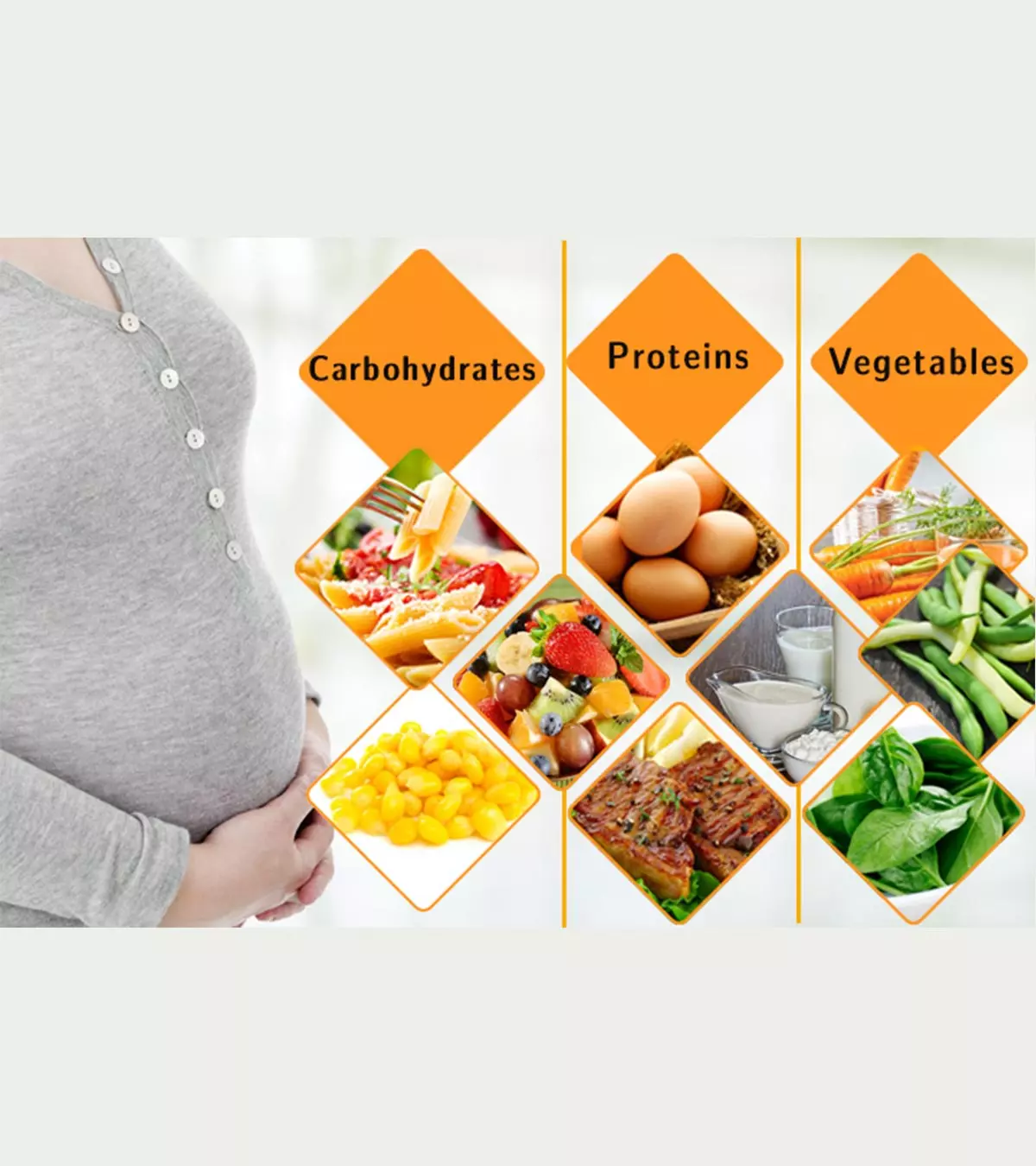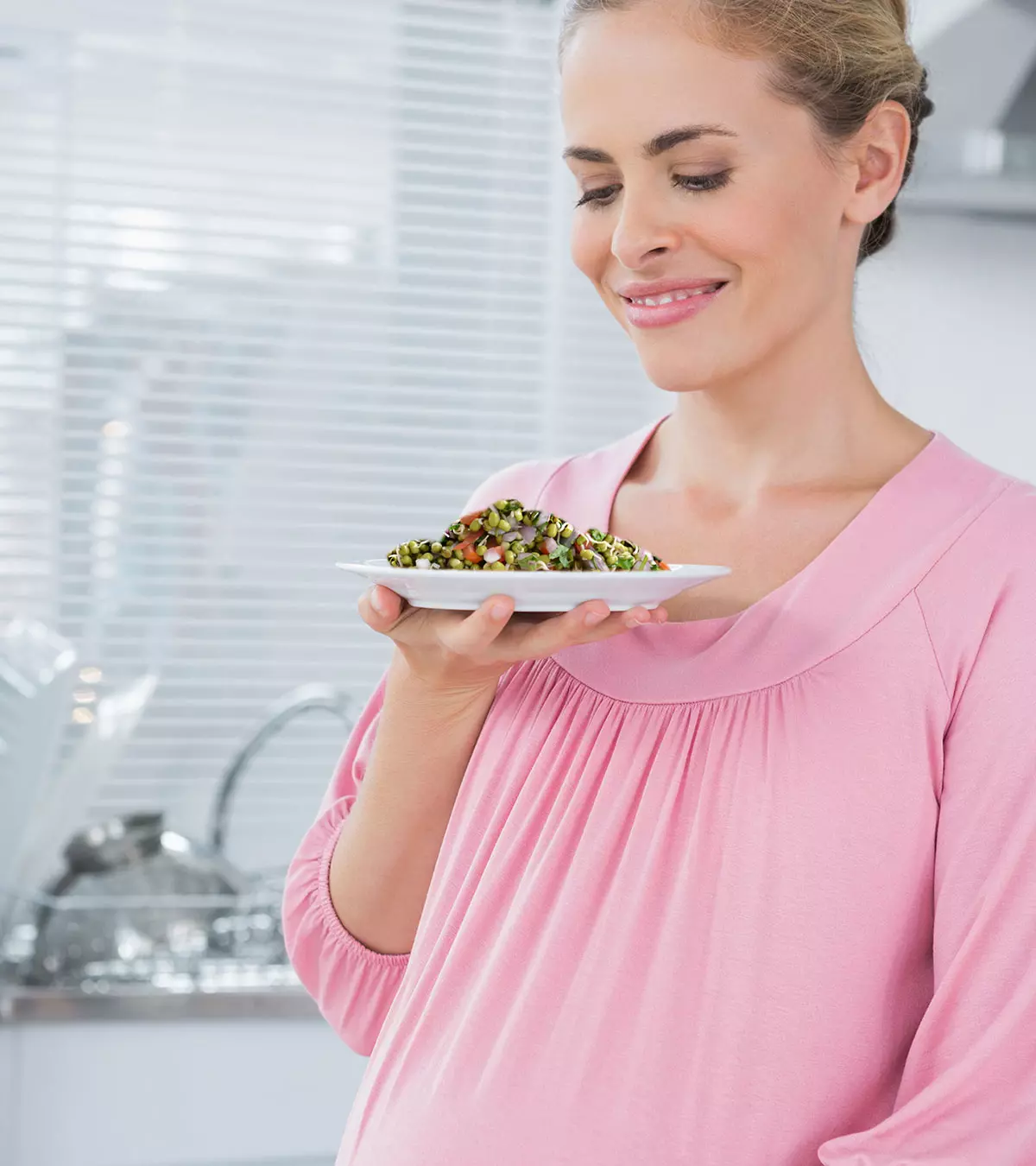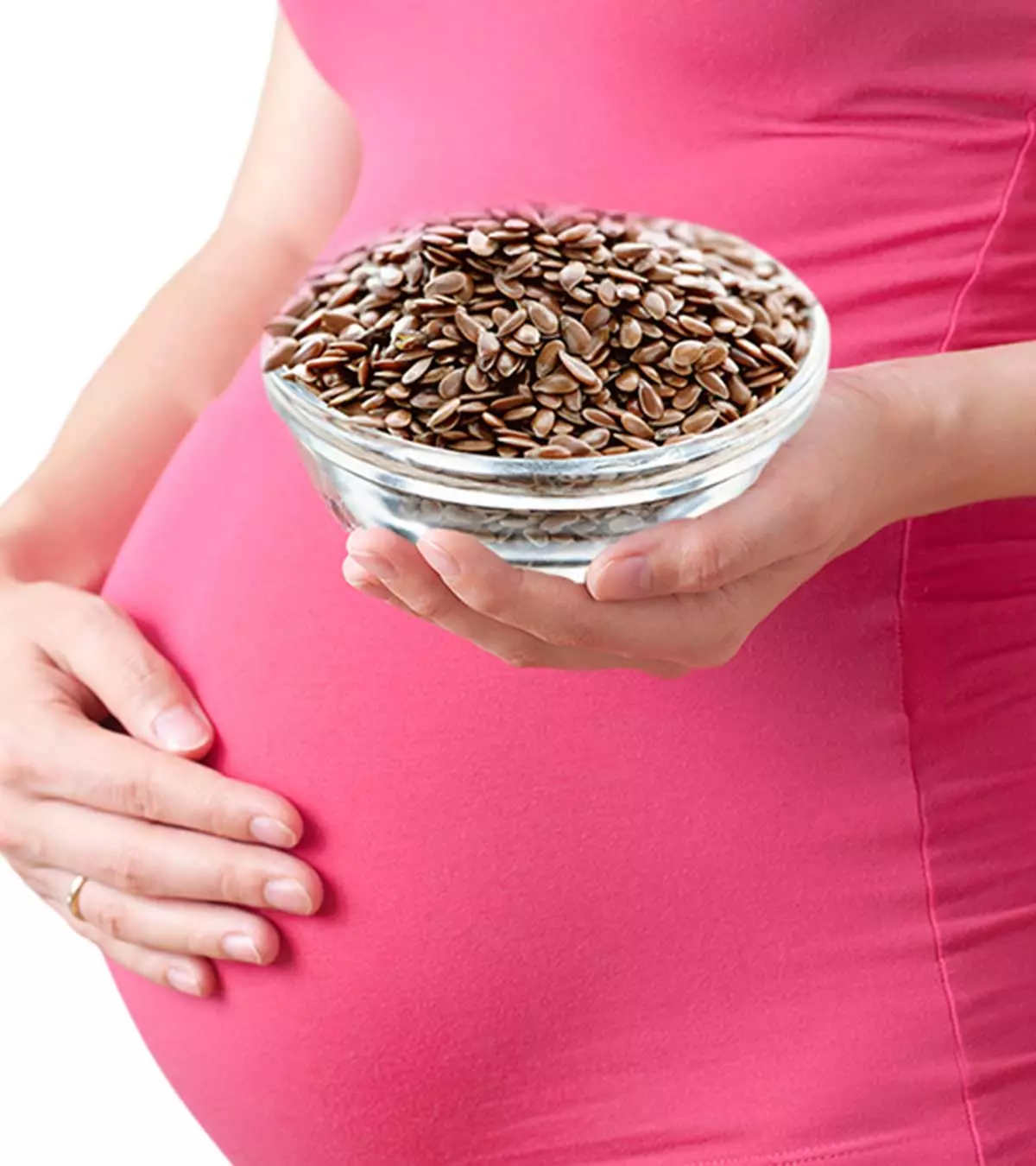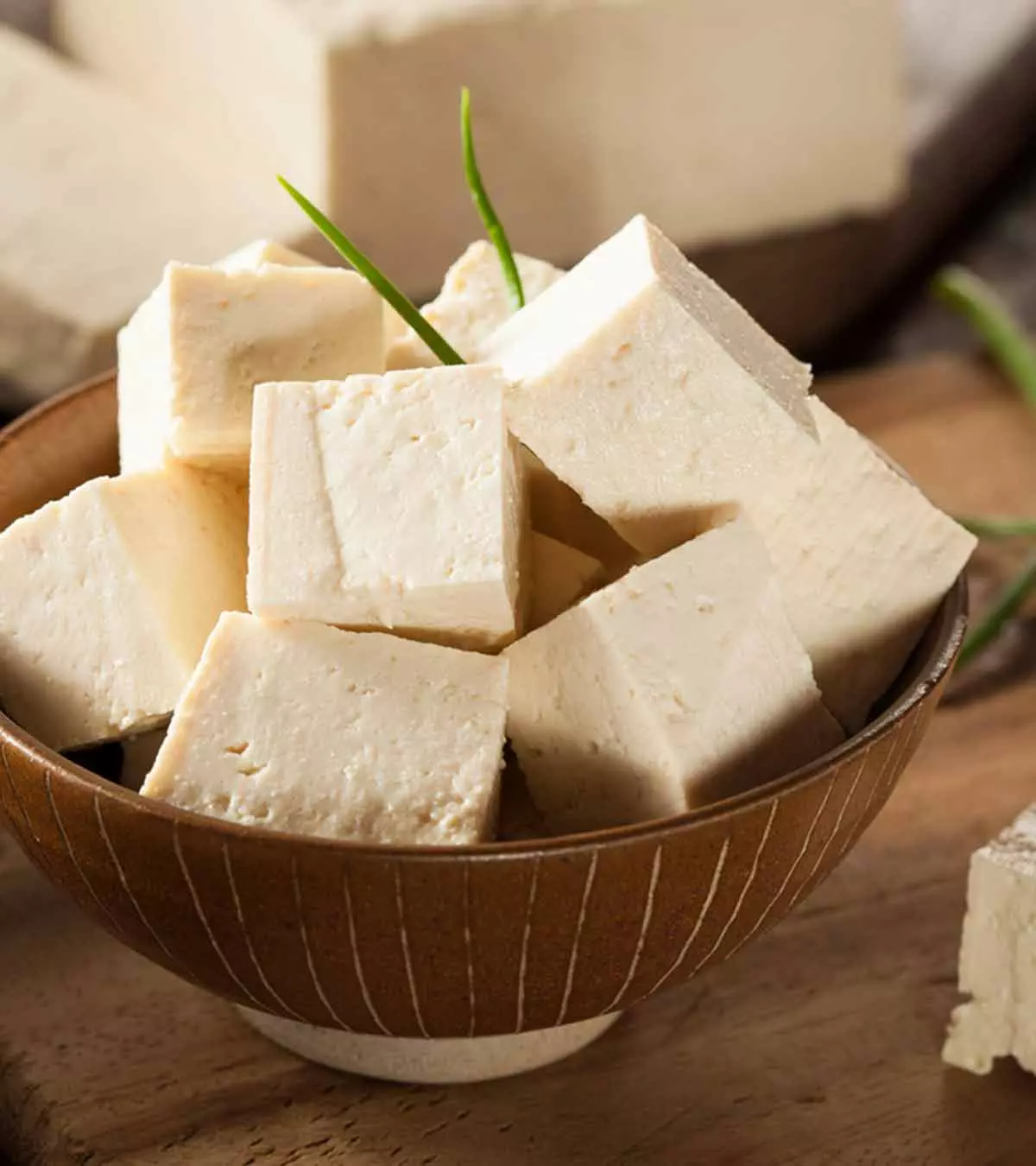
Image: iStock
Tofu is a source of plant-based protein. It is a soft food, easy to digest, and nutrient-rich. However, parents may have concerns about the possibility of allergic reactions when using tofu for babies.
Tofu or soya bean curd is prepared by coagulatingiRelated to coagulation where fluid is turned into change into a semi-solid or solid state soy milk and pressing it into solid blocks of varying softness. It can be prepared in soft, silken, firm, or extra firm varieties. Its spongy texture and nutritional benefits make parents look forward to adding tofu to their baby’s weaning diet.
Keep reading this post to know about the right age to introduce tofu to babies and the benefits and possible side effects.
Key Pointers
- Consult a pediatrician before introducing tofu to your baby.
- Once the baby is about eight months old, you can add one portion of tofu at least twice a week.
- Tofu is naturally gluten-free and a good source of calcium and iron.
- Always buy fresh tofu from a farmer’s market, which can be refrigerated for a week.
- Pureed, mashed, or scramble tofu recipes are baby-friendly.
Is It Safe For Babies To Eat Tofu?

Image: IStock
Yes, it is safe for babies and toddlers to eat tofu. However, you need to check for possible allergic reactions. Tofu is made from coagulated soy milk, which is one of the common food allergens. If a family member or baby’s sibling is allergic to soy, then consult a pediatrician before introducing tofu.
Once you get a go-ahead from the doctor, then introduce tofu in an age-appropriate way. For example, consider giving cooked and mashed or pureed tofu to younger babies, who cannot chew. You may consider giving uncooked tofu chunks or tofu sticks to older babies, who can chew.
When Can Babies Have Tofu?
You may consider introducing tofu to your baby-weaning food once they are about eight months old. Tofu is generally easy to digest but may cause gastrointestinal issues in babies younger than eight months. If you wish to introduce tofu early, then consult a pediatrician first.
The American Academy of Pediatrics (AAP) recommends feeding two servings of protein sources, such as tofu, to toddlers (1). Thus, besides other sources like meat, fish, and poultry, you can add one serving of an alternative protein source like tofu at least twice a week along with breast milk.
If you are a vegan or vegetarian mother, then consult a pediatric nutritionist to know the right amount of tofu that your baby can eat safely on a regular basis.
Nutritive Value Of Tofu
Tofu is considered a healthy alternative to meat for vegan babies since it is rich in protein. It contains all essential amino acids, fats, carbs, a wide variety of vitamins and minerals, high isoflavonei content and other micronutrients. It is naturally gluten-free and an excellent source of calcium and iron too. Some varieties of tofu are also lactose-free, making it an ideal food source for lactose-intolerant people.
There are three forms of tofu available commercially, –firm, soft, and silken. Firm tofu is relatively dense and has higher amounts of protein, fat, and calcium than other forms.
A quarter block (81g) of raw, firm tofu prepared with calcium sulfate provides the following nutrients to your baby with reference to the per-day requirement of these nutrients (2) (3) (4).
| Name | Amount | RDA |
|---|---|---|
| Water | 56.6g | – |
| Energy | 117Kcal | – |
| Protein | 14g | – |
| Total lipid (fat) | 7.06g | – |
| Carbohydrate, by difference | 2.25g | – |
| Fiber, total dietary | 1.86g | – |
| Calcium, Ca | 553mg | 270mg (7-12 months) |
| Iron, Fe | 2.16mg | 8.5mg |
| Magnesium, Mg | 47mg | 75mg (7-12 months) |
| Phosphorus, P | 154mg | 275mg (7-12 months) |
| Potassium, K | 192mg | 700mg (7-12 months) |
| Sodium, Na | 11.3mg | 200mg (7-12 months) |
| Zinc, Zn | 1.27mg | 5.6mg |
| Copper, Cu | 0.306mg | 0.6-0.7mg (7-12month) |
| Manganese, Mn | 0.957mg | 0.6mg |
| Selenium, Se | 14.1µg | 12µg |
| Folate, total | 23.5µg | 32µg (7-12 months) |
| Vitamin A, IU | 134IU | 1166IU |
Sources: U.S. Department of Agriculture, World Health Organization, and National Institutes of Health
Potential Health Benefits Of Tofu For Babies
Consuming tofu in moderate amounts can be beneficial to your baby. According to Lisa Richards, nutritionist and the founder of Candida Diet, “Tofu is a good source of iron, calcium, and essential minerals for bone health and overall well-being. Rich in unsaturated fats, it also supports healthy brain development. With its soft and easily digestible texture, tofu is suitable for introducing solid foods to babies, especially when mashed or pureed. Additionally, it could be incorporated into various baby-friendly recipes, providing an alternative protein source for families following vegetarian or vegan diets.”
- Healthy fats: Tofu is low in saturated fat and high in polyunsaturated fatty acidsiType of essential fatty acids that the body needs for brain function and cell growth (PUFA). It contains omega-3 fatty acids, such as alpha-linoleic (AL) and alpha-linolenic (ALA) fatty acids in good amounts (5). Both these fatty acids are crucial for growing babies. This is linked to lower rates of heart disease and reduced blood vessels inflammation.
- High-quality protein: Tofu contains all the nine essential amino acids, thus making it one of the best plant sources of high-quality protein (6). This protein can help with your baby’s growth and development.
- Antioxidants: Tofu contains compounds such as carotenoids, vitamins C, E, phenolic, and thiols that possess antioxidant properties. These compounds, in the long run, could mitigate the free radical damage (7).
- Bioactive compounds: A variety of bioactive compounds, such as saponins, protease inhibitors, phytic acid, and isoflavones (6), support heart health, bone health, and improve metabolism in the long run (8). Scientific data suggest that soy isoflavones reduce bone loss, have a positive influence on memory and brain function and help in skin elasticity also.
Regular intake of tofu might also have a positive effect on immunity and gut microbiota. However, these possible benefits are still under research (9) (10).
Probable Side-Effects Of Tofu In Babies
Tofu can have the following side effects, which may lead to health problems.
- Antinutrients: Tofu contains small amounts of antinutrients like phytates and trypsin inhibitors. Phytates interfere with mineral absorption, such as calcium , zinc, iron, whereas trypsin inhibitor blocks trypsin, an enzyme necessary for protein digestion. These antinutrients seldom cause problems. However, they might become a problem if your baby’s weaning diet is not well-balanced. Soaking, cooking, fermenting, or sprouting soybeans can reduce or inactivate some of these anti-nutrients.
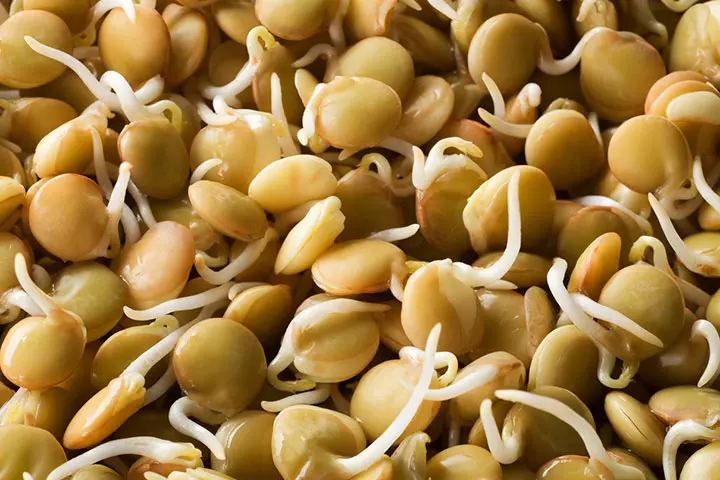
Image: IStock
- Allergy: If your baby is allergic to soy, then allergic reactions can appear any time before the age of three years. However, most children outgrow the allergy during childhood. In the case of a possible allergic reaction, watch out for common signs such as vomiting, wheezing, swelling around the mouth, hives, and stomach cramps (11). In severe cases, soy allergy can lead to anaphylaxis. If your baby is allergic to soy, then you should eliminate all the soy products, such as soy sauce and tofu, from their diet.
 Quick fact
Quick fact- Autoimmune disease: Do not feed tofu to your baby in large quantities. Stick to a moderate intake as part of a balanced diet. An excess of soy products, like tofu, is associated with health issues such as Kawasaki diseasei A condition causing inflammation of the blood vessels resulting in swollen hands and feet, rashes, and reddening of eyes (12). According to AAP, more than 4,200 children in the US are diagnosed with Kawasaki disease annually.
Side effects of tofu can be managed well when you follow standard precautionary measures while introducing new food to your baby.
Precautions To Take While Giving Tofu To Babies
Below are some simple precautions that would ensure your baby’s safety.
- While introducing tofu for the first time, select soft or silken tofu over its firm form.
- Follow a three to five-day wait rule. This will help recognize signs of intolerance, sensitivity, or allergy.
- Avoid adding any other new food simultaneously while introducing tofu.
- Begin feeding age-appropriate quantities. As your infant gets comfortable, you can increase the quantity as per your nutritionist’s guidance.
- In the beginning, try to feed mashed tofu. You can also make tofu paste if your baby does not like it in mashed form.
- Consider adding some herbs and spices to enhance the flavor as tofu has umamiiOne of the five basic tastes that can be described as savory taste that your baby may or may not like.
- As your baby grows older, you can consider giving tofu as healthy finger food. Cut it into thin slices or strips before serving it to your baby.
- Avoid giving tofu in small cubes or thick tofu chunks as they can be a potential choking hazard.
You can try feeding tofu to your baby in various ways as they get comfortable with its taste and texture.
How To Select And Store Tofu?
Follow these simple steps to select and store tofu.
Buying
- Prefer to buy non-GMO, organic tofu, if possible.
- Buy it from a reputable manufacturer to ensure quality.
- Check the manufacturing and expiry date on the packaging.
- Look for specifications such as dehydrated, freeze-dried, or canned tofu. It is important as tofu is available in various forms, shapes, and state of storage.
- Prefer buying fresh tofu from a farmer’s market.
Storage
- Open the package, drain the water inside, and wash tofu block in cold water and blot it dry with a paper towel.
- Cut the tofu block into slices or cubes. Take a BPA-free airtight plastic container or a glass container. Fill the container with plain water and let the slices or cubes immerse in it. Change the water every two days, at least.
- Fresh tofu can be stored under refrigeration for up to seven days. Frozen tofu, in its original package, can stay well for up to five months.
- If you wish to freeze fresh tofu, then you may do so. However, during freezing, it turns spongy and might change to a darkish caramel color.
- Always thaw frozen tofu at room temperature rather than microwave before use.
- If you are storing cooked leftover tofu, then store it in an airtight container and use it within a day or two. It can be stored in water, covering with water and changing the water often.
- Once opened, tofu blocks need to be rinsed prior to use.
Way To Include Tofu In Your Infant’s Diet
You may introduce tofu in various ways, depending on the baby’s age.
- When introducing it, serve tofu mashed, as a paste, or as pureed food. You can mix these tofu forms with different fruits and vegetable purees or smoothies once your baby gets used to tofu taste. Tofu veggie scramble is a healthy plant based alternative to scrambled egg.
- You may also try adding mashed tofu to homemade cerelac or other porridges. It will make a healthy tofu baby food that is rich in protein and other vital nutrients.
- Stir fry tofu strips in olive oil and herbs to make interesting finger food for your baby. Add some veggie shreds to make the recipe more wholesome and visually appealing.
- As your baby begins to chew, try adding bite-sized cubes or tofu nuggets into soups and salad. You can also mix tofu cubes with crushed cheerios or crushed graham crackers to make a healthy evening snack.
- Enhance the nutritional value of a smoothie by adding tofu. You may also make tofu shake with soy milk and a variety of seasonal fruits for a toddler.
- Make vegetable salad more appealing to your toddler by dressing it with a tofu dip. You can use the same dip with some added seasoning to make a sandwich spread, too.
- Prepare a tofu burger with loads of veggies for your toddler. It is a fun and tasty way to keep your child’s protein intake high.
- Tofu and tomato or vegetable soup is another way to add taste and nutrients to your baby food.
 Quick tip
Quick tipBesides these, there are several other ways to include tofu in your little one’s diet. All you need to do is experiment.
Tofu Recipes For Babies
These are some age-appropriate wholesome tofu recipes that can be comfortably added to your baby’s regular diet.
1. Tofu and mango puree
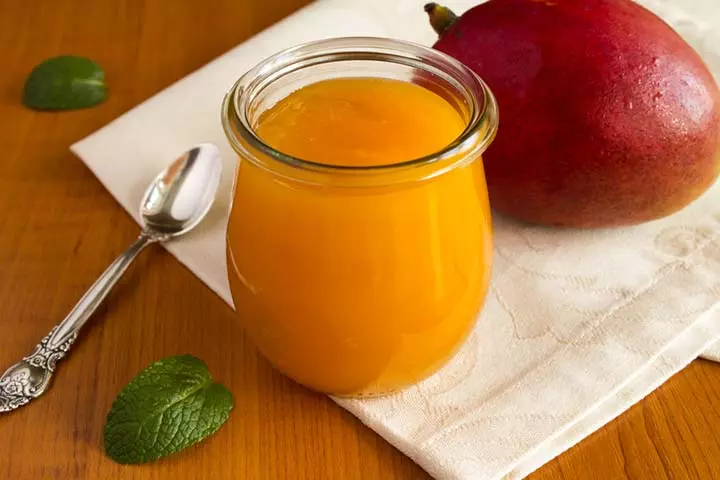
Image: Shutterstock
You can serve this recipe to your baby or toddler as a midday snack. It not only tastes good but also has many health benefits.
You will need:
- ½ cup plain soft tofu
- 1 cup mango pulp (diced)
How to:
- Chop the tofu into small chunks.
- Blend tofu and diced mango until you get a smooth mixture or puree-like consistency.
- Pour out the mixture into a bowl and serve.
Tip:
You can add half a cup of Greek yogurt and one tablespoon of nuts and seeds powder to this recipe. It will intensify the nutritional value of the recipe.
2. Tofu scramble
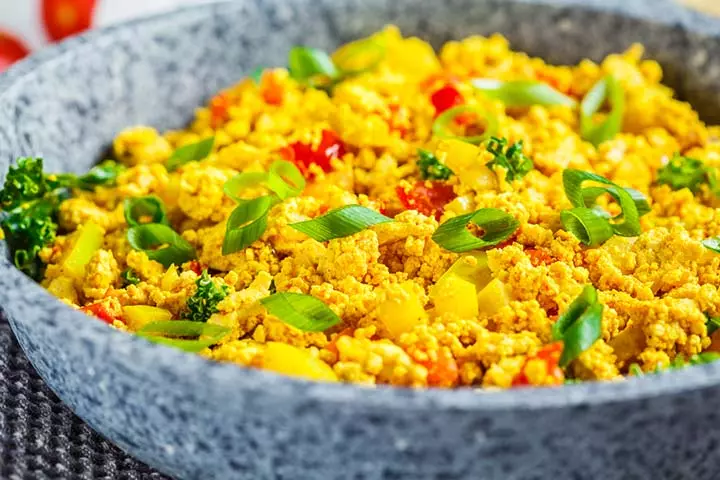
Image: IStock
Serve it with baked sweet potato, pitta bread, whole grain bread, or steamed rice for breakfast or dinner. Add chunks of seasonal vegetables to enhance the overall nutritional value of the recipe.
Adding vegetables makes it a great source of vitamins and minerals. It is a hearty and delicious plant based alternative to scrambled eggs.
You will need:
- 8oz regular or firm tofu
- ½ cup red onion (finely sliced)
- ½ cup green bell peppers (finely chopped)
- ½ cup corn kernels
- 2tbsp virgin olive oil
- Salt, to taste
How to:
- Take a few tofu slabs of medium thickness. Pat them dry and keep them aside for 10-15 minutes.
- Meanwhile, take a thick bottom frying pan and pour two tablespoons of olive oil in it.
- As the oil gets heated, put sliced onions to it and sauté until they turn golden brown.
- Now add green pepper and corn kernels and cook them until they turn crisp.
- Add a pinch of salt and stir. Cook until all the veggies get softened.
- Meanwhile, take a fork and scramble the tofu slabs.
- Once done, add the scrambled tofu into the pan. Sauté the mixture for two to three minutes. Stir constantly and cook the mixture for an additional five minutes or until the tofu is slightly browned.
- Serve immediately with baked potatoes, toast, or steamed rice.
Tip: You may add some safe herbs like oregano to this recipe. You may also add some homemade tomato sauce to enhance taste.
 Did you know?
Did you know?3. Banana and tofu smoothie
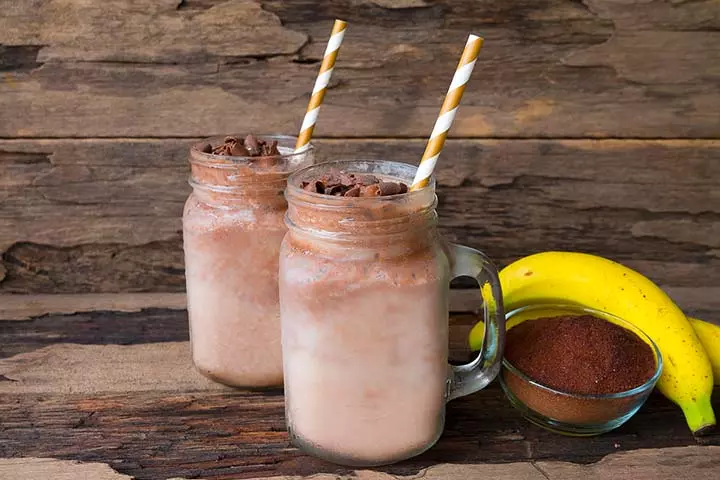
Image: IStock
One glass of this smoothie can provide more than 250 calories and thus is a healthy choice to meet your child’s growing nutritional needs. Though there is nothing unsafe about having banana in the night, you may give this as an evening snack. Choose a banana that is fully yellow in color, which is an indication of ripeness.
You will need:
- 1 cup silken tofu
- 1 banana (sliced)
- 1 cup Greek yogurt (or plain yogurt or flavored yogurt)
- 1tbsp cocoa powder
- 1tbsp dried fruit powder
- 1 cup water
How to:
- Take a blender and add all the ingredients in it.
- Blend tofu with all the ingredients until you get a smooth consistency drink. Ensure there are no lumps.
- Serve it immediately or refrigerate it before serving.
Tip: You may top the drink with finely chopped nuts. However, ensure that the nuts are thinly sliced to avoid choking.
Frequently Asked Questions
1. Can I give babies raw tofu?
Babies can eat scrambled raw tofu from six months of age. Silken tofu is an excellent choice to serve mashed or scrambled tofu to babies. Alternatively, you can serve two-inch-thick sticks of the firm or extra-firm tofu to your baby for self-feeding.
2. Does cooking tofu destroy nutrients?
Cooking tofu doesn’t destroy its nutrients. Instead, cooking methods, such as boiling and steaming, can help destroy or deactivate some anti-nutrients in tofu (13).
3. Can I freeze tofu baby food?
Like several other foods, you can freeze tofu baby food in BPA-free, non-toxic, airtight containers in the fridge for about three to four days. Freezing is an option if you want to store tofu baby food for longer.
4. Can babies eat baked tofu?
You can grill, stir-fry, or bake tofu to make delectable tofu recipes for babies. Since baking can harden tofu pieces, it is best to scramble baked tofu to minimize the choking risk.
5. Can I give my baby tofu every day?
Tofu can be a nutritious addition to your baby’s diet, providing protein and essential nutrients. However, offering a variety of foods is recommended to ensure a balanced diet. Serving tofu a few times a week as part of a diverse menu is ideal. Always check with your baby’s pediatrician for tailored advice.
Tofu for babies is a rich source of protein. Babies can usually have tofu by the time they are about eight months old or have started solid foods. However, give them tofu in limited amounts as too much of it might increase the risks of autoimmune disease. Also, consult the doctor or pediatrician in case of allergies. You could also prepare these easy recipes with tofu for your child, and they are sure to enjoy having them.
Infographic: Delicious Tofu Recipes For Babies
We have provided some more recipes if you have already tried and tested the recipes provided in the article and want to try something new. In the following infographic, we have included a few healthy baby-friendly tofu recipes you can prepare for your little ones and provide them with the required nutrition. Illustration: Momjunction Design Team
Illustration: Must-try Recipes With Tofu For Babies And Health Benefits

Image: Stable Diffusion/MomJunction Design Team
Learn the ins and outs of introducing tofu through baby-led weaning! Check out easy steps and tips to incorporate this nutritious food into your little one’s diet, making mealtimes a delightful exploration for both parent and baby.
References
1. Serving Sizes for Toddlers; Healthy Children; American Academy of Pediatrics
2. Tofu, raw, firm, prepared with calcium sulfate, FDC ID: 172475; Fooddata Central; USFDA
3. Feeding and nutrition of infants and young children; WHO
4. Manganese; National Institutes of Health
5. Omega-3 Fatty Acids; National Institute of Health
6. Julia R. Barrett; The Science of Soy: What Do We Really Know?; National Center For Biotechnology Information
7. Ndatsu Yakubu et al.; Antioxidant and Hepatoprotective Properties of Tofu (Curdle Soymilk) against Acetaminophen-Induced Liver Damage in Rats; National Center For Biotechnology Information
8. Brij Pal Singh, Deepika Yadav, and Shilpa Vij; Soybean Bioactive Molecules: Current Trend and Future Prospective; pp 1-29; Springerlink
9. Jae Hee Lee et al.; Effect of fermented soybean products intake on the overall immune safety and function in mice; National Center For Biotechnology Information
10. Haiqiu Huang et al.; Soy and Gut Microbiota: Interaction and Implication for Human Health; ACS Publications
11. Soy Allergy; American College of Allergy, Asthma & Immunology
12. Children’s Soy Consumption Linked to Increased Kawasaki Disease Risk; Seattle Children’s
13. Shimi, G. and Hasnah, H.; Does cooking affect the phytate content in local soy based dishes?; Researchgate
14. Soy Allergy; FARE (Food Allergy Research & Education)
Community Experiences
Join the conversation and become a part of our nurturing community! Share your stories, experiences, and insights to connect with fellow parents.
Read full bio of Seeemaa Budhraja
- Lisa Richards is a certified nutritionist coach from the Institute for Integrative Nutrition. She is an author at the Candida Diet (thecandidadiet.com), with 17 years of experience.
 Lisa Richards is a certified nutritionist coach from the Institute for Integrative Nutrition. She is an author at the Candida Diet (thecandidadiet.com), with 17 years of experience.
Lisa Richards is a certified nutritionist coach from the Institute for Integrative Nutrition. She is an author at the Candida Diet (thecandidadiet.com), with 17 years of experience.
Read full bio of Swati Patwal
Read full bio of Rohit Garoo
Read full bio of Ghazia Shah











